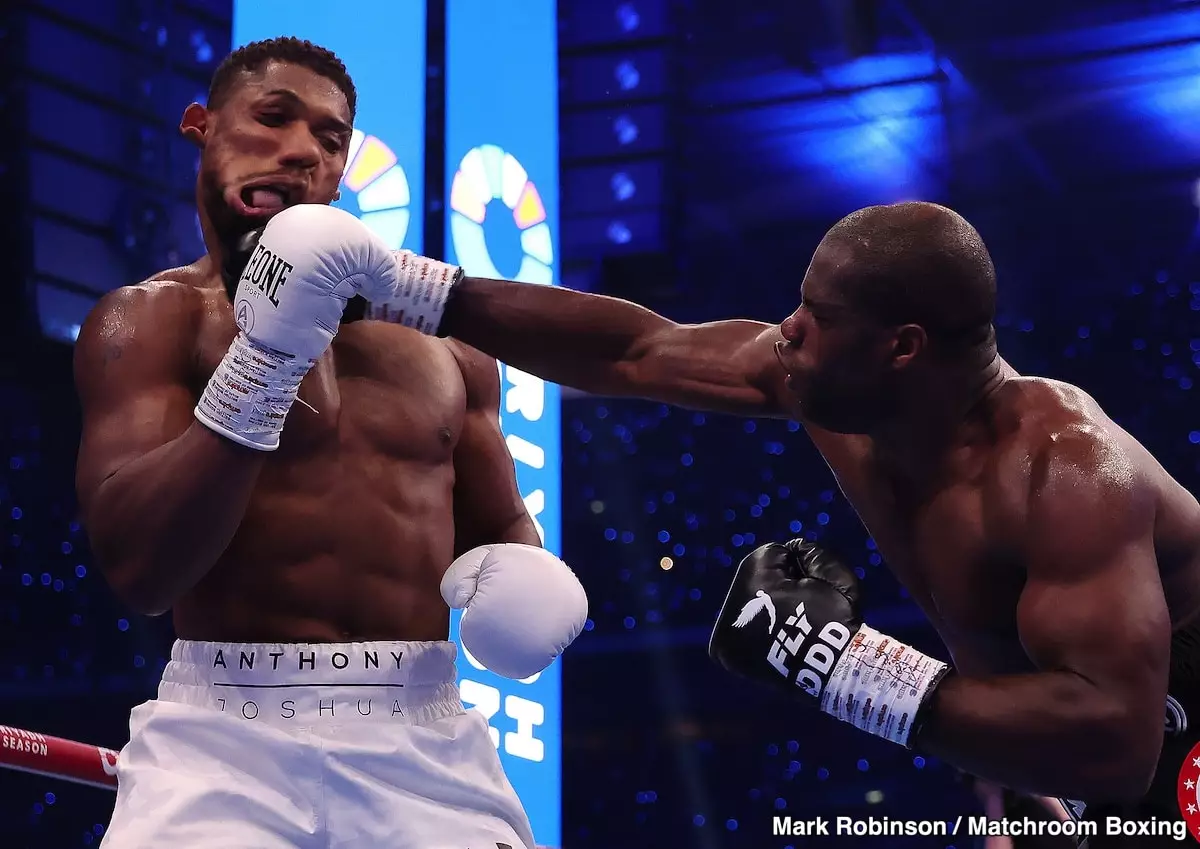In an event that left boxing fans reeling, Anthony Joshua, a once-mighty figure in the heavyweight division, faced a devastating loss to the rising star Daniel Dubois. The fight, staged in front of a roaring crowd at Wembley Stadium, ended in a fifth-round knockout that was anything but competitive. From the outset, it was evident that Joshua, now standing at a record of 28 wins and 4 losses, struggled to keep pace with the younger, more vigorous Dubois, whose record improved to 22 wins and just 2 losses.
The match took a swift turn as early as the first round when Dubois scored a knockdown with a well-timed right hand. While the shot may not have appeared extraordinarily powerful, it sent a clear message: this was a different Daniel Dubois, one in command and able to exploit Joshua’s evident vulnerabilities.
Throughout the fight, Joshua presented a version of himself that was strikingly diminished. His response time was lethargic, and his movements felt labored. After briefly stunning Dubois and seeming to back him up, Joshua’s bravado quickly unraveled when he attempted to chase the fight. Dubois seized this opportunity, landing a hard right that sent Joshua crashing to the canvas. The imagery of a once-dominating champion now struggling to stand was haunting, highlighting the stark contrast between past achievements and present realities.
Each subsequent round saw Joshua get battered repeatedly, his resilience tested to its limits. One cannot overlook the unsettling sight of a fighter, who once ruled the division, visibly shaken and unable to mount a significant offensive. It felt as if each round was a reminder of his diminishing prowess – the knockdowns in the second and fourth rounds were not merely setbacks; they were indicative of a systemic failure to adapt to a faster and more agile opponent.
Following this disheartening performance, Joshua faces a critical junction in his career. The loss to Dubois raises important questions about his future in boxing: should he seek an immediate rematch to regain his standing, or is it time to consider retirement in the face of mounting evidence that he may no longer dominate the sport? Joshua’s promoter, Eddie Hearn, mentioned a rematch clause; however, the potential risks of pursuing this path cannot be overstated. It could lead to another painful defeat, one that might drive home a conclusion Joshua and his supporters dread.
The reality for Joshua is stark—he must reassess not only his training regimen but also his approach to the sport. With Dubois demonstrating superior speed, strength, and tactical acumen, Joshua’s window to reclaim his former glory may be closing rapidly. The boxing community will be watching closely to see how he navigates this tumultuous period, weighing his options and considering whether he can resurrect the vulnerabilities exposed in the ring that night against the young lion.
The heavyweight landscape has shifted following Joshua’s defeat by Dubois. His legacy, once adorned with triumph, is now overshadowed by uncertainty, making it imperative for him to find answers in the face of adversity.

